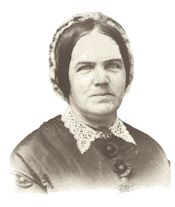Near Griswoldville, November 22, 1864.
Has been a gay day for our brigade. The other two brigades of our division went to work on the railroad this morning, and we on a reconnoisance toward Macon. Found Rebel cavalry at once. My Companies A and B, were thrown out as skirmishers. Forty of us drove at least 400 Rebel cavalry at least four miles, and kept them a mile ahead of the brigade. I think we killed and wounded at least 20 of them. We finally charged them out of a rail barricade and thoroughly stampeded them. It was the richest thing I ever saw. We got highly complimented on the way we drove them. Griswoldville was the point we started for, and having reached it we lay there an hour or so, and were then ordered back to the brigade. We found it in line along an open field, building a rail barricade along the front. We had a nice open field without even a fence on it, full 600 yards wide in our front. We were getting dinner, not dreaming of a fight, when lively musketry opened on the picket line, and in a minute more our pickets came in flying. A fine line of Johnnies pushed out of the woods after them, and then started for us. We commenced throwing up logs in our front and did not fire a shot until they were within 250 yards of us, by which time our works would protect us from musketry. We all felt that we had a sure thing, and had there been but one line of Rebels, we would have let them come up close to us. But, by the time the first line had got within 250 yards of us, three other lines had emerged from the woods, and they had run two batteries out on the field further to our right which opened on us. Our artillery returned the fire, but was silenced almost immediately. We then let loose on them with our muskets, and if we did not interest them, it is queer. One after another their lines crumbled to pieces, and they took the run to save themselves. There was a ravine 50 yards in front of us, and as the Rebels did not dare to run back over that field, they broke for the ravine. It was awful the way we slaughtered those men. Once in the ravine most of them escaped by following it up, the willows and canes screening them. We let a skirmish line into the ravine, which gobbled some 50 prisoners, a number of Africans among them. It was a most complete repulse, and when the numbers alone are considered, a glorious thing for us. Only our little brigade of say 1,100 muskets ware engaged on our side and no support was nearer than four miles (and then but one brigade), while the Rebels had four brigades and two regiments, about 6,000 men. But the four brigades were “Militia.” We estimate their loss at 1,000, and I do not think it an overestimate. Ours is 14 killed and 42 wounded in the whole brigade; four killed and seven wounded in the regiment; two in my company; 25 out of 30 Rebel bullets went 20 feet over our heads. Not one of ours went higher than their heads. Gen. C. C. Wolcutt was wounded much as Colonel Wright was, but more severely. No officers in our regiment were wounded. Two Rebel generals were either killed or wounded—General George, who formerly commanded in north Mississippi, and General Hall or Call. I was never so affected at the sight of wounded and dead before.
Old grey-haired and weakly-looking men and little boys, not over 15 years old, lay dead or writhing in pain. I did pity those boys, they almost all who could talk, said the Rebel cavalry gathered them up and forced them in.
We took all inside our skirmish line that could bear moving, to our hospital, and covered the rest with the blankets of the dead. I hope we will never have to shoot at such men again. They knew nothing at all about fighting, and I think their officers knew as little, or else, certainly knew nothing about our being there. About dark we moved back to this place, two miles from the battle field. The Johnnies drew off before we did, I think.










